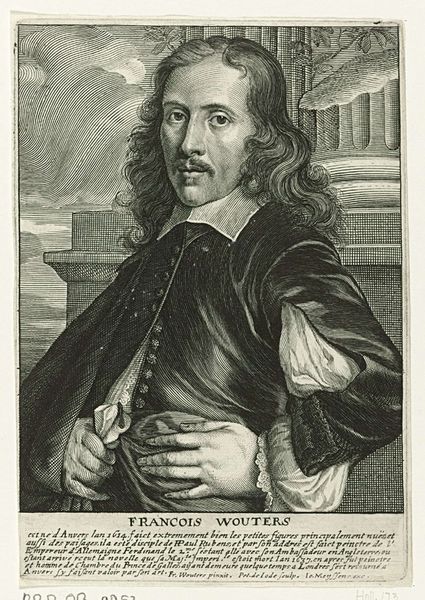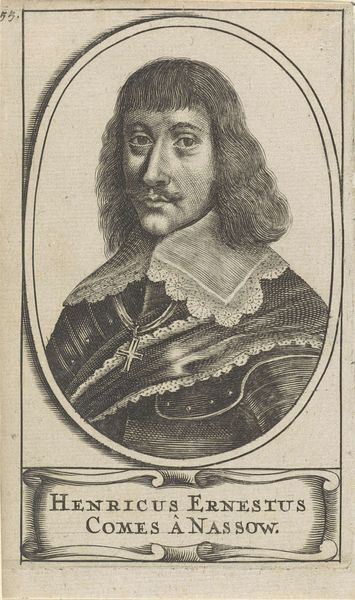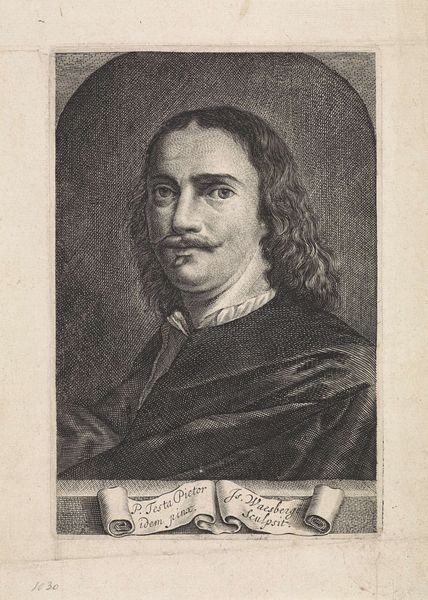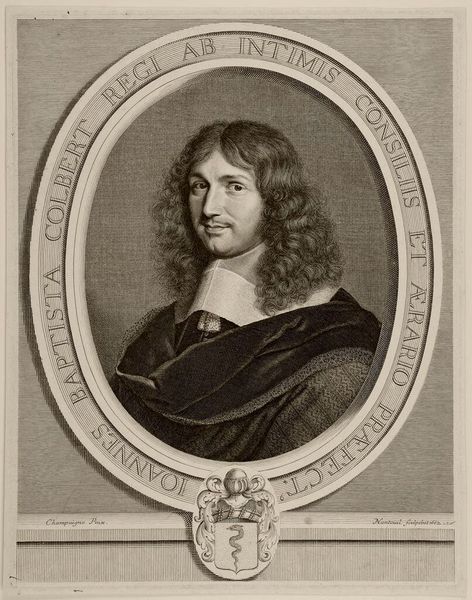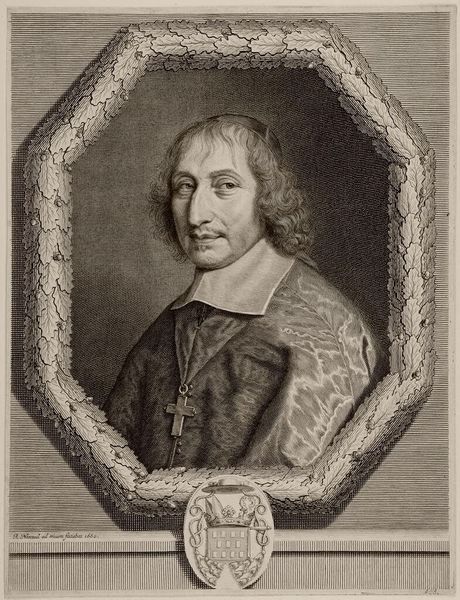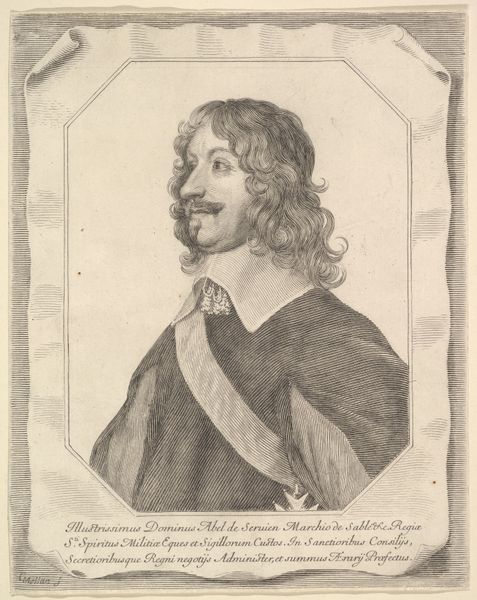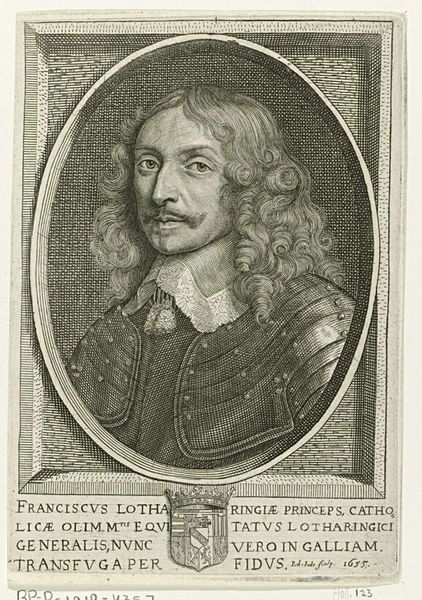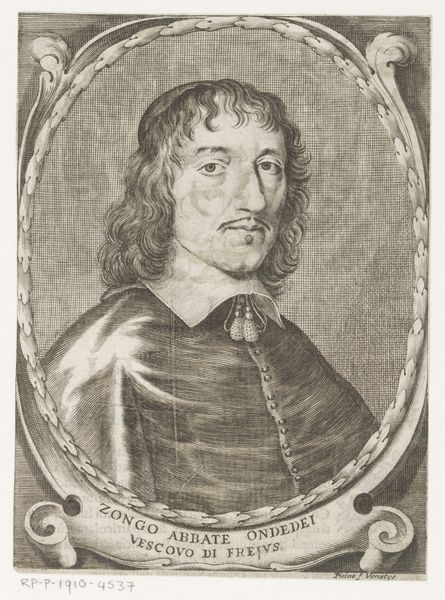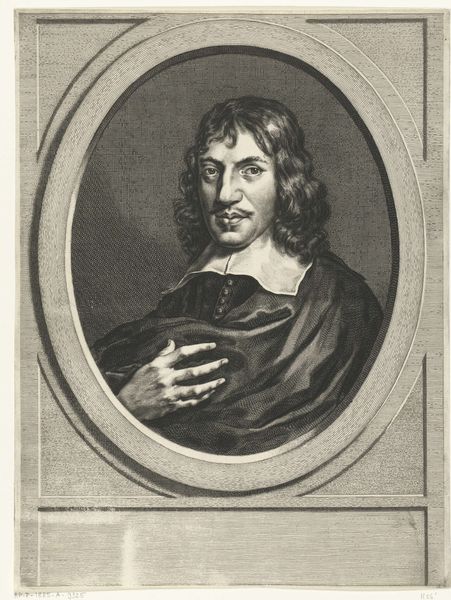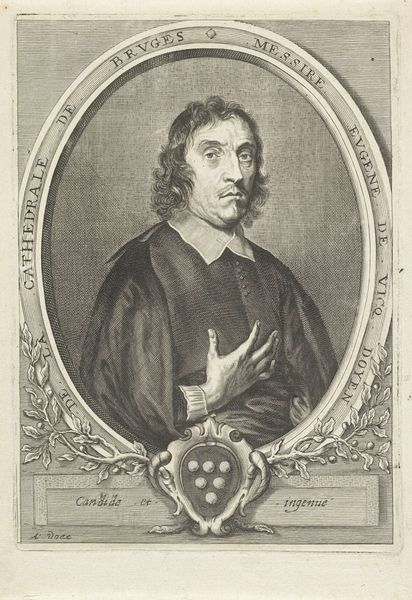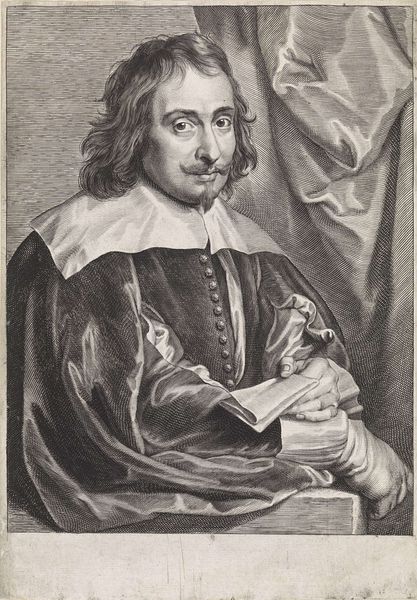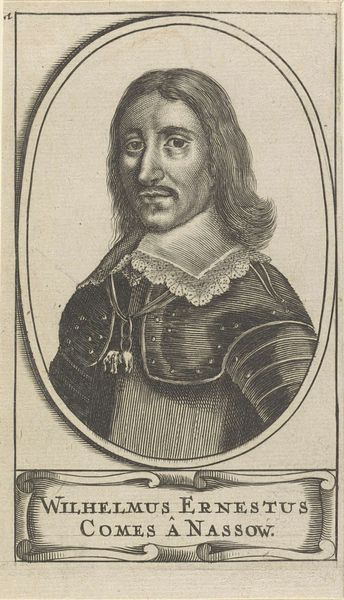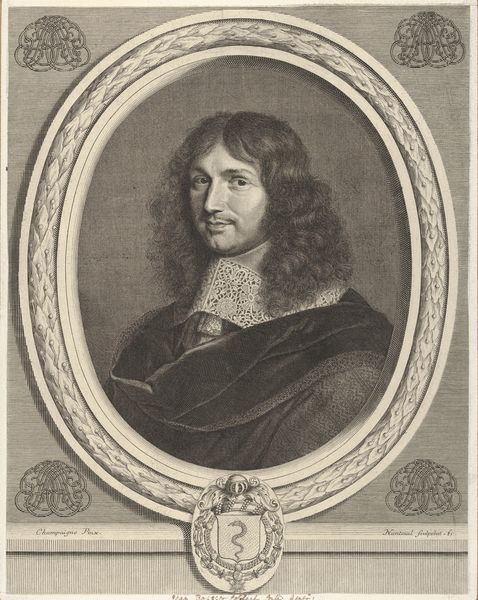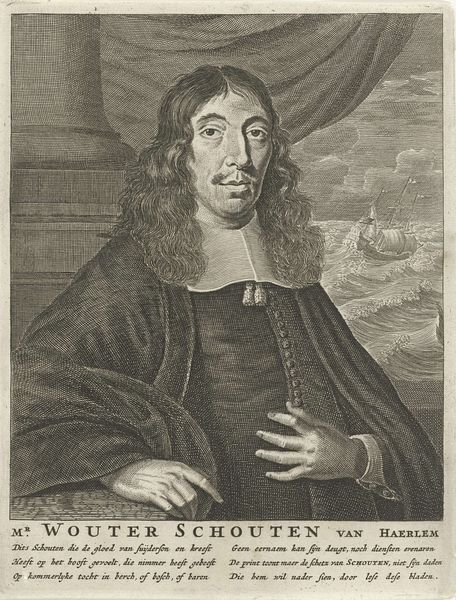
print, engraving
#
portrait
#
baroque
# print
#
engraving
Dimensions: height 271 mm, width 201 mm
Copyright: Rijks Museum: Open Domain
Paulus Pontius created this print of Jan Davidsz. de Heem using the intaglio process, a method where the image is incised into a metal plate, inked, and then pressed onto paper. The network of fine lines defines the contours of de Heem’s face, hair, and clothing, giving the print a tactile quality. Look closely at the velvety texture of his cloak, achieved through dense, cross-hatched lines. Pontius likely used a burin, a specialized engraving tool, to carve these intricate details into the copperplate. Printmaking in the 17th century was a skilled craft, demanding precision and patience. Artists like Pontius played a crucial role in disseminating images and ideas, making art more accessible to a wider audience. This portrait, in particular, celebrates the talent and status of a fellow artist, contributing to the cultural landscape of the time. So, next time you encounter a print, consider the labor, skill, and social context embedded within its lines.
Comments
No comments
Be the first to comment and join the conversation on the ultimate creative platform.
